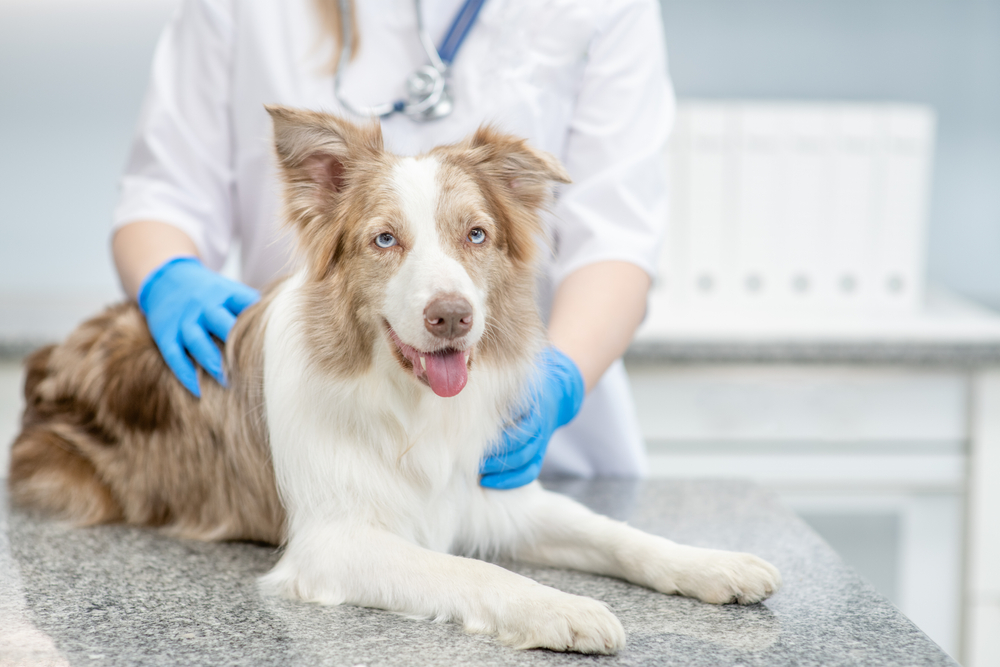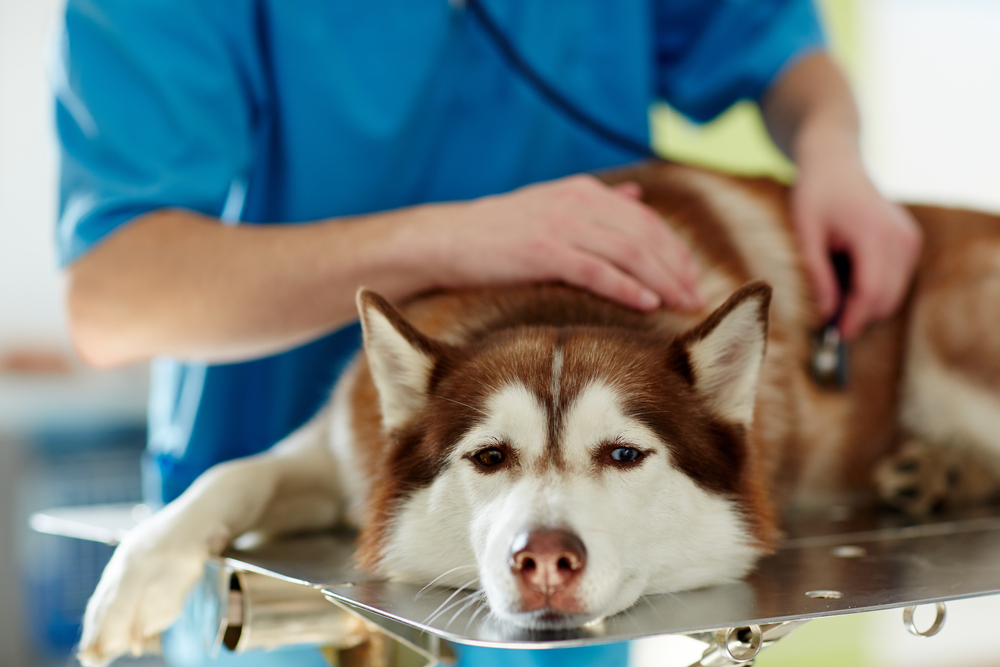If your dog’s throat is red and swollen or they’re having difficulty swallowing, the most important thing to do is get them checked out by a vet. A visible swelling around the neck can also be due to issues outside the throat. Swelling in dogs can be caused by several things including—but not limited to—infections, allergies, and foreign objects, all of which can cause serious problems if left untreated.
In this guide, we’ll share some potential causes of a swollen throat in dogs and giveaway signs to look for.
The 7 Common Causes of Swollen Throat in Dogs
Pharyngitis is the term used to describe throat inflammation as a result of viral or bacterial infection, but there can be other causes. Signs of pharyngitis include a red and swollen throat, difficulty swallowing, a dry cough, noise in the upper respiratory tract, nasal discharge, hoarse bark, drooling, white mucus on the throat, and lack of appetite.
Since there are so many potential causes of throat swelling in dogs, we’ve broken this down to address the ones that came up most over the course of our research. There may be more causes than those mentioned here, which is why it’s essential to check with a vet.
1. Kennel Cough
Kennel cough—or infectious tracheobronchitis—is an upper respiratory condition caused by a viral or bacterial infection. Bordetella bronchiseptica is often the bacteria behind the infection, but the canine influenza and parainfluenza virus as well as the adenovirus type-2 can also be to blame among other viruses.
The seriousness level of kennel cough can range from mild to severe, though luckily, severe infections aren’t that common, especially in healthy dogs. Puppies and geriatric dogs are more susceptible to severe illness and secondary problems from kennel cough.
A sore throat can occur as a result of a persistent hacking cough, which is also sometimes described as a “honking” sound. Other signs include gagging, retching, wheezing, and a cough being triggered when you stroke the windpipe.

2. Tonsillitis
Though tonsillitis is often thought of as a human ailment, dogs can get it, too, though this happens rarely. Smaller breeds are more likely to get it than larger breeds, and brachycephalic dogs like French Bulldogs may experience chronic tonsillitis.
Tonsillitis is typically secondary to another condition like a lung, nose, upper throat, or other airway disorder. Bacteria or foreign material lodge in the tonsils causing inflammation. Enlarged tonsils can cause the dog to gag and have difficulty swallowing. Lip-licking and lowered appetite due to discomfort are also signs of tonsillitis. Your vet will need to diagnose the infection or condition causing tonsillitis to find the best course of treatment.
3. Cancer
Signs of tumors in the larynx and trachea include labored breathing on inhalation and post-exercise, hoarse bark, voice loss, hitch-pitched and noisy breathing, and coughing/gagging. Luckily, these kinds of tumors aren’t overly common, but they are often very serious. The tumor can also arise from the tissues around the throat such as the skin, muscle, or thyroid gland. Prognosis depends on the tumor type and whether surgery to remove the cancer is possible based on its location, size and invasiveness.

4. Allergic Reactions
A dog’s throat can swell up as a result of an allergic reaction. This can be triggered by the environment (plants, dust, mites, pollen, etc.), chemicals, medications, food, fleas, and insect bites.
Allergy symptoms are often mild, but if your dog’s throat is swollen or inflamed, this is indicative of a serious allergic reaction that needs prompt veterinary treatment. Even if your dog only has mild symptoms, still take them to a vet as mild symptoms can quickly develop into airway obstruction, which can be fatal.
5. Trauma
Injury to the throat—like those caused by chewing on sharp or splintered objects or pulling too hard on the leash—may cause it to swell up. Sticks are a potential cause of trauma and infection in the throat, which is why the British Veterinary Association cautions against throwing sticks for your dog to fetch. If a blood vessel ruptures in the skin under your dog’s throat, a haematoma could form, leading to a large swelling.

6. Dental Issues
Poor dental health can lead to issues like periodontal disease, which is an accumulation of tartar that results in a gum bacterial infection. In turn, this can cause infections like tonsillitis, which causes the throat to swell up. Dental conditions can also cause swelling of the mouth and face.
It’s a good idea to brush your dog’s teeth daily to help prevent dental health problems down the line. Bad breath, difficulty eating, difficulty chewing, pawing at the face and mouth, and drooling are also signs of dental problems, among others.
7. Foreign Bodies
Foreign bodies like foxtails sometimes get stuck in dogs’ ears, noses, eyes, mouth, and throat and need to be removed by a vet. If a foxtail is in the throat, signs include coughing, retching, drooling, gagging, and possibly swelling. In addition, they can burrow under the skin and cause an abscess. Keep an eye out for foxtails when out walking with your dog, don’t let your dog run through them, and pick them out of their fur if needed.
If you’re concerned about your dog’s health we suggest you speak to a vet.
If you need to speak with a vet but can’t get to one, head over to PangoVet. It’s an online service where you can talk to a vet online and get the personalized advice you need for your pet — all at an affordable price!


Final Thoughts
To recap, swelling of the throat or lymph nodes should always receive veterinary attention, because not only is this undoubtedly very uncomfortable for dogs, but the underlying cause could be serious. If you’re worried about your dog in any way, please don’t hesitate to contact a vet.
Featured Image Credit: Eve81, Shutterstock











